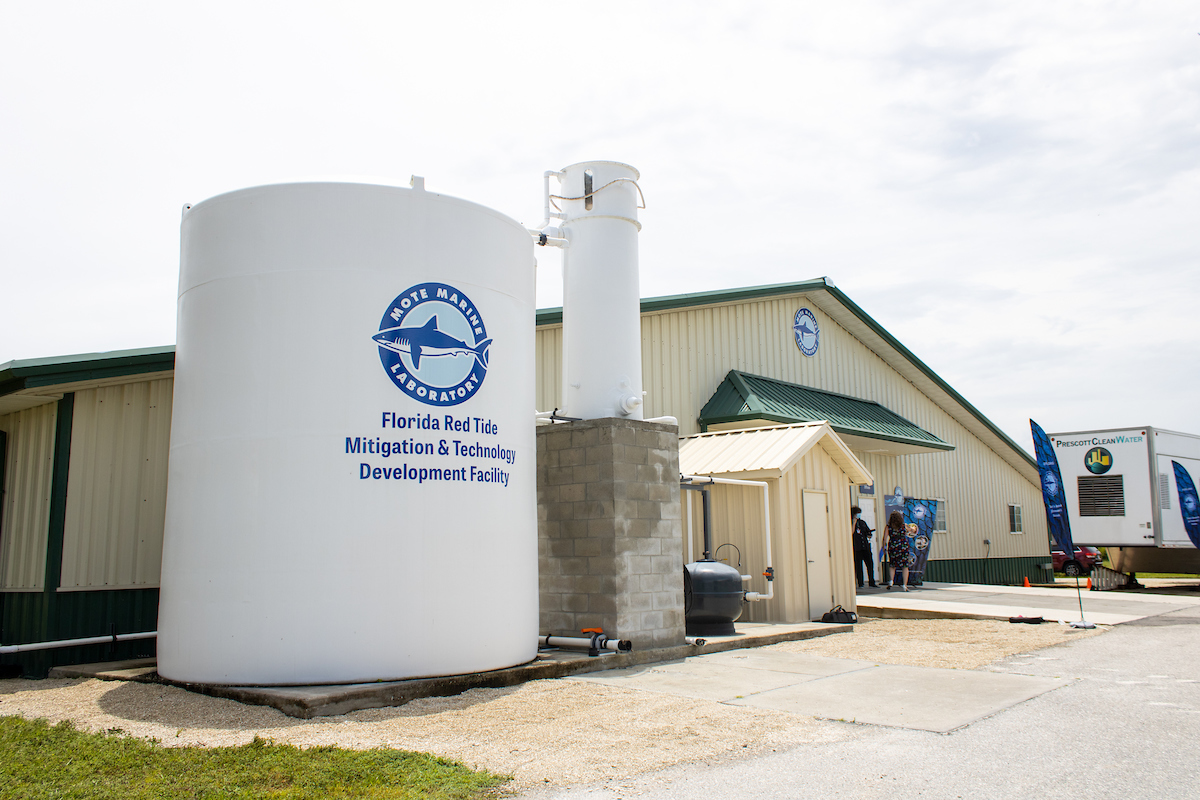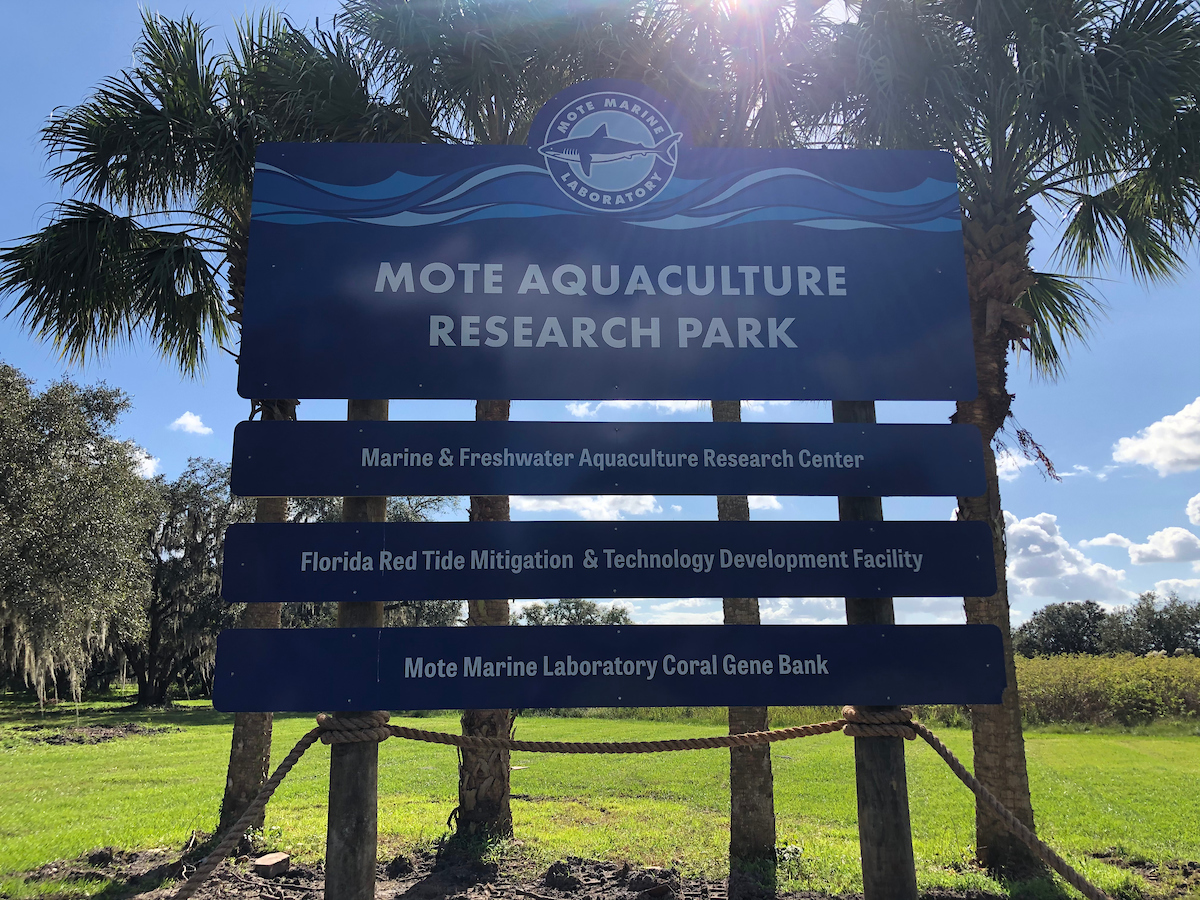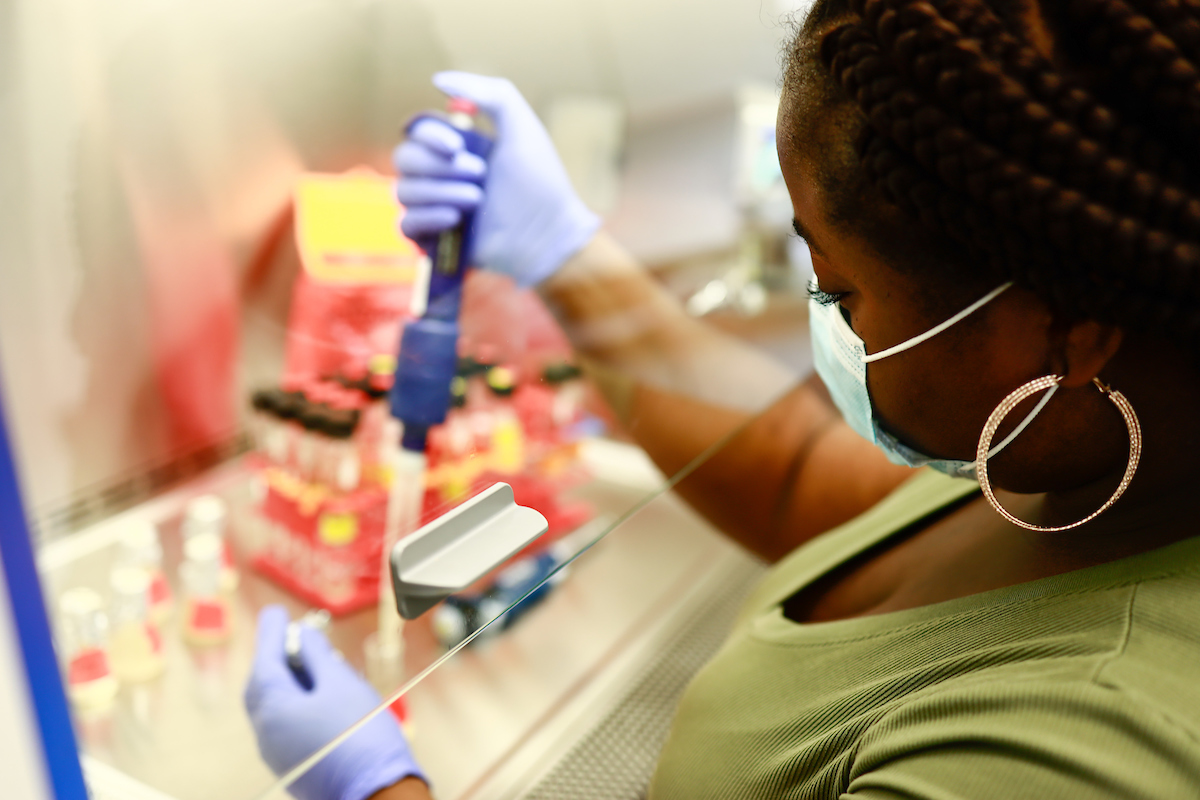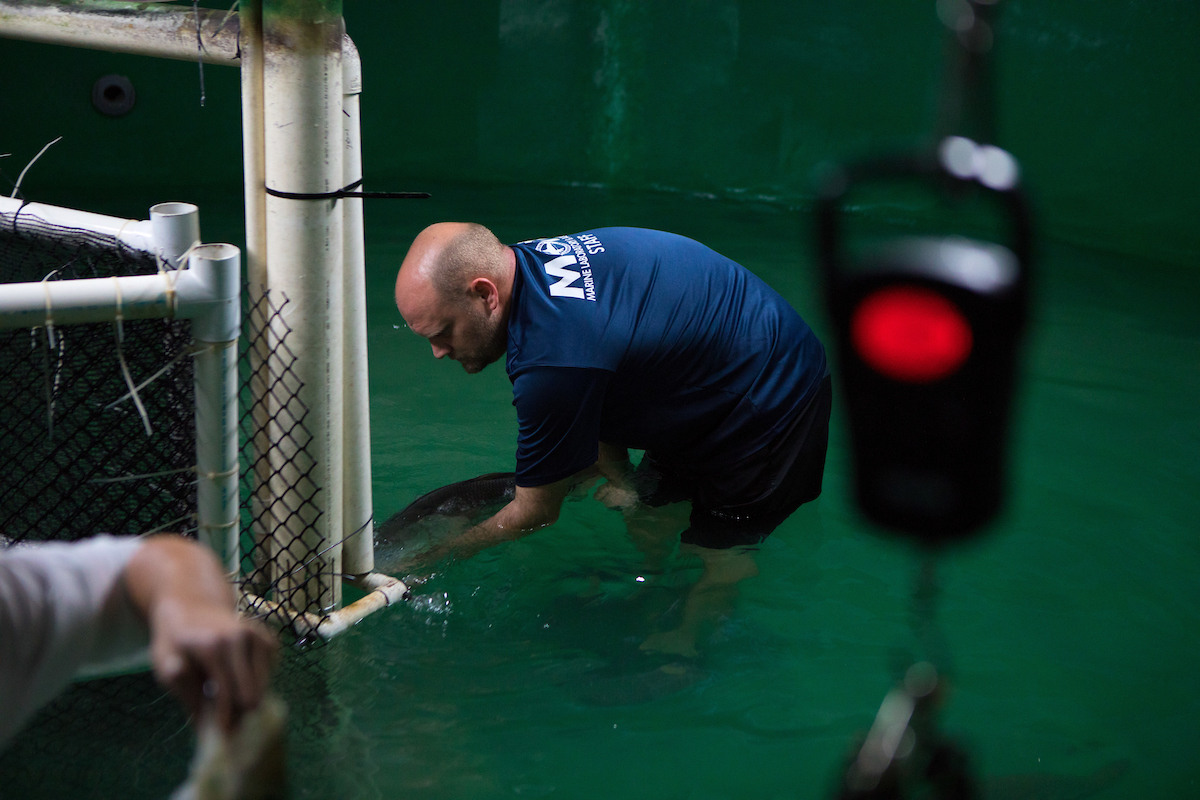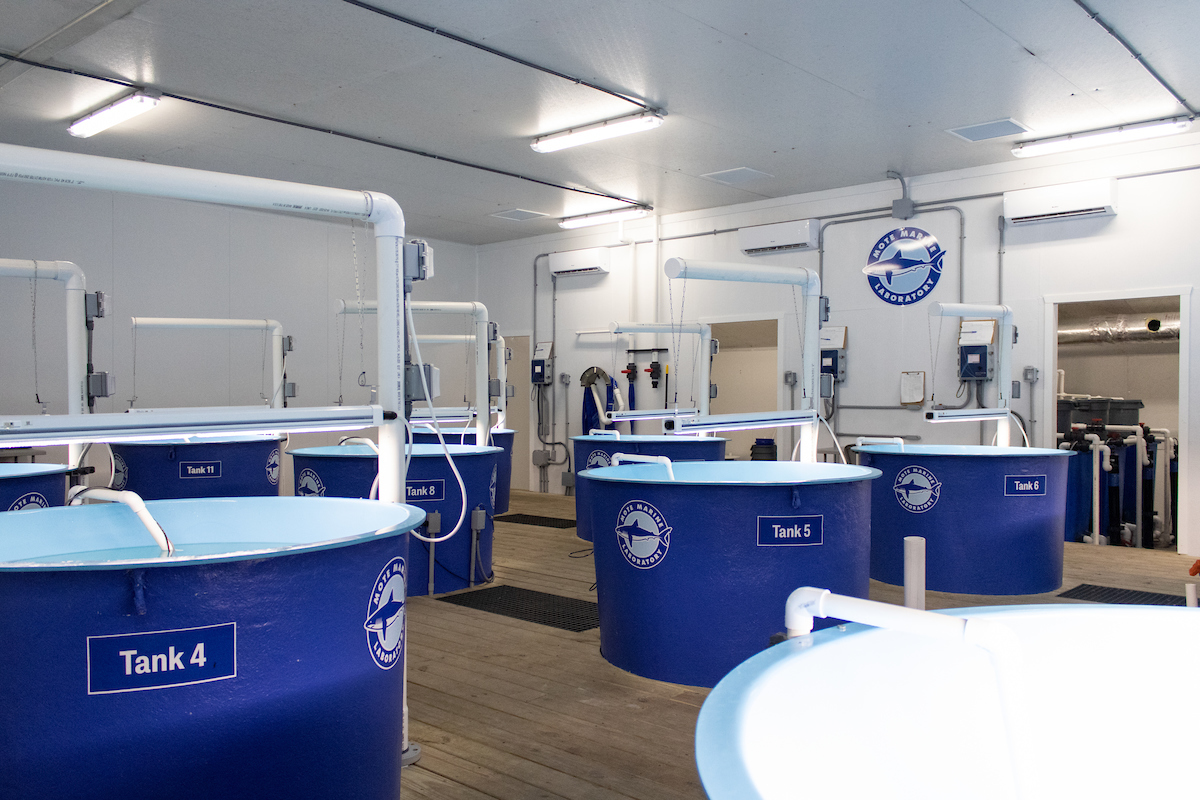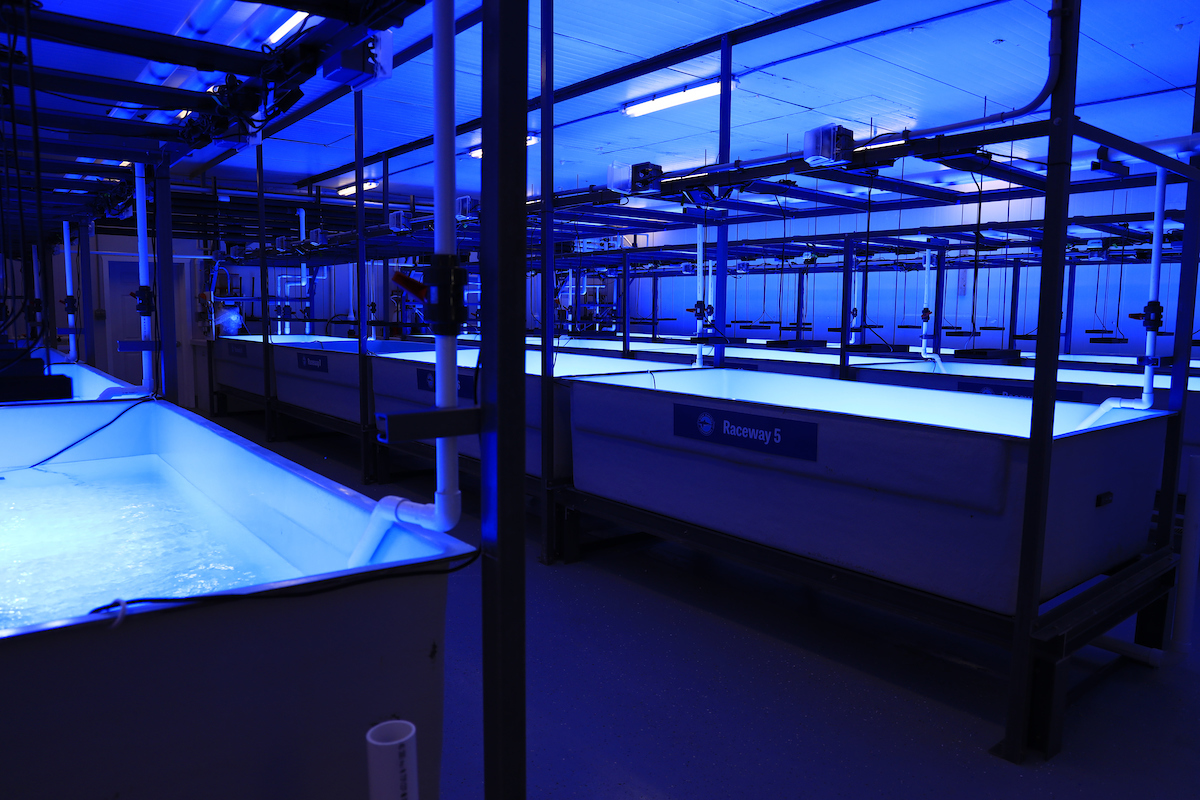Mote Aquaculture Research Park (MAP) was constructed in 2001 to pioneer the development of sustainable aquaculture technology to help feed the world, restock depleted species, and address the need to develop a viable, domestic aquaculture industry in the U.S.
Today, MAP continues to advance this critical effort while hosting additional key components of Mote Marine Laboratory's mission.
The following facilities are located at MAP— use the right hand menu to learn more about each facility.
MULTIPLE AQUACULTURE RESEARCH FACILITIES
This innovation-focused campus features state-of-the-art research, pilot- and commercial-scale aquaculture systems that recycle 100% of their saltwater. Traditional aquaculture uses large quantities of high-quality water that is discharged after minimal use. Water is globally recognized as a valuable and limited commodity, so Mote scientists develop technologies to clean and reuse this resource to its maximum potential.
This campus includes the Ron and Marla Wolf Aquaponics Center (made possible by the generous support of the Wolf Foundation), which was recently established to expand Mote's successful research with marine aquaponics: raising saltwater fish and plants together in a sustainable, closed-loop system. The Wolf Aquaponics Center is designed to help Mote demonstrate the economic feasibility of sustainable, marine aquaponics at a scale relevant to commercial farms.
FLORIDA RED TIDE MITIGATION & TECHNOLOGY DEVELOPMENT FACILITY
To fight the impacts of Florida red tide (blooms of Karenia brevis algae) effectively while causing no further environmental harm than red tide itself, scientists must test red tide mitigation compounds and technologies in the environment. Long before that, they must test them in the lab and then in large “mesocosm” or “raceway” tanks designed to provide a preview of the possible environmental impacts.
In 2020, Mote created this cutting-edge facility to do just that, as part of the Florida Red Tide Mitigation & Technology Development Initiative led by Mote in partnership with the Florida Fish and Wildlife Conservation Commission (FWC).
INTERNATIONAL CORAL GENE BANK
Coral reefs are experiencing unprecedented die-offs worldwide, and it’s critical to restore them with resilient and genetically diverse corals that have the best chances to survive and reproduce. However, scientists can only do that if our native corals don’t disappear first. To protect the living treasure of coral genetic diversity, Mote has created a unique, large-scale, land-based, living coral gene bank where dozens of coral genotypes (genetic varieties) of at least 30 species can be stored in triplicate.
